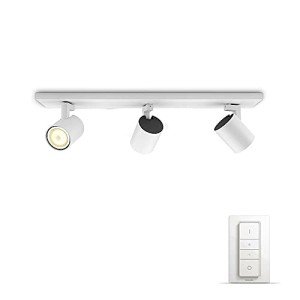Buy Smart Lighting in the UK: A Comprehensive Guide
In the last few years, smart lighting has revolutionised the way we brighten our homes and work environments. As technology advances, LED and smart lighting choices are becoming increasingly popular in the UK. investigate this site intends to supply a thorough overview of the benefits, types, setup, and purchasing suggestions for smart lighting in the UK.
What is Smart Lighting?
Smart lighting refers to lighting systems that can be managed remotely through a mobile phone, tablet, or smart home center. Suitable with numerous smart home communities like Amazon Alexa, Google Assistant, and Apple HomeKit, smart lighting uses users boosted performance and benefit.
Key Benefits of Smart Lighting
Energy Efficiency
- Reduced Energy Consumption: Smart bulbs are typically LED, taking in considerably less energy than traditional incandescent bulbs.
- Scheduling: Users can programme lights to switch off throughout the day when not needed, conserving electrical power.
Push-button control
- Convenience: Smart lights can be managed from anywhere, allowing users to change settings while away from home.
- Integration with Other Devices: Smart lighting often incorporates with security systems, supplying alerts and increased security.
Customisation
- Dimming Options: Many smart bulbs included dimmable features that can change according to mood or requirement.
- Color Control: Smart lighting enables users to choose from millions of colors and hues for different settings.
Environmental Impact
- Sustainability: Energy-efficient bulbs add to decreasing carbon footprints, making them an environmentally friendly choice.
Kinds Of Smart Lighting
1. Smart Bulbs
These bulbs can be screwed into existing light fittings and typically connect through Wi-Fi or Zigbee. Popular brand names include Philips Hue and LIFX.
2. Smart LED Strips
Versatile and adhesive, LED strips can be positioned under cabinets, along walls, or behind TVs to produce a modern atmosphere.
3. Smart Fixtures
These total lighting fixtures include built-in smart innovation and are appropriate for direct setup into homes without requiring to replace light bulbs.
4. Smart Outdoor Lighting
Developed specifically for outdoor usage, these lights offer features like weather resistance, customized schedules, and remote operation.
| Type of Smart Lighting | Secret Features | Best For |
|---|---|---|
| Smart Bulbs | Numerous colors, dimmable | Indoor usage, versatile choices |
| Smart LED Strips | Adhesive, versatile design | Decorative ambient lighting |
| Smart Fixtures | Built-in smart technology | Direct replacements for old fixtures |
| Smart Outdoor Lights | Weatherproof, motion spot | Outdoor security and ambiance |
How to Install Smart Lighting
Installing smart lighting is normally simple, specifically with smart bulbs. Here are some general steps:
- Choose Your Smart Lighting: Select the kind of smart lighting that finest fits your requirements.
- Download the App: Most smart lighting includes an application that guides the setup procedure and provides control performances.
- Change Existing Bulbs/Fixtures: If required, eliminate existing bulbs or fixtures and replace them with the smart ones.
- Link to Wi-Fi: Open the smart lighting app and follow instructions to connect your lights to your Wi-Fi network.
- Configure Settings: Set schedules, colour preferences, and any other customisation choices through the app.
Where to Buy Smart Lighting in the UK
Smart lighting is widely available in the UK, supplying consumers with a range of alternatives. Here are some top sellers:
- Amazon UK: A huge choice of smart lighting brands and user reviews.
- Argos: Offers a range of smart lighting services and bundled offers.
- B&Q:&Known for home enhancement, they offer different smart lighting fixtures and bulbs.
- John Lewis: High-end choices in addition to recommendations and warranties.
- IKEA: Offers affordable smart solutions that integrate well into modern living areas.
Tips for Buying Smart Lighting
1. Determine Compatibility
Make sure that the smart lighting you choose is compatible with the ecosystem you are utilizing, such as Amazon Alexa or Google Home.
2. Look for Features
Look for features that match your preferences, such as dimmability, color alternatives, and scheduling abilities.
3. Read Reviews
Customer reviews can offer insights into efficiency and dependability.
4. Think About Smart Hub Integration
Some smart lighting may require a dedicated hub for operation. Evaluate if this is required for your chosen system.
5. Evaluate Energy Efficiency Ratings
Examine for energy performance scores to guarantee you are making an accountable purchase.
Frequently Asked Questions about Smart Lighting in the UK
- What is the average expense of smart lighting?The cost can range from ₤ 10 for basic smart bulbs to a number of hundred pounds for advanced smart fixtures.
- Can I install smart lighting myself?Yes, the majority of smart lighting systems are developed for simple setup and do not require expert assistance.
- Is smart lighting safe to use?Smart lighting is usually safe, however guarantee to follow all manufacturer standards throughout installation.
- What takes place if the Wi-Fi goes out?Some smart lights have a backup mode that allows standard functionality even without Wi-Fi. However, complete features will be unavailable until connection is brought back.
- Are smart lights appropriate for outdoor use?Yes, there are specifically created smart lights for outdoor conditions that are weather-resistant.
Smart lighting is not just a design improvement but likewise a step towards energy performance and benefit. With a broad selection of choices offered in the UK, it is much easier than ever for customers to incorporate smart lighting into their homes. By understanding click the next page , installation procedures, and where to buy, people can make educated choices that best fit their requirements. Embracing smart innovation now might lead to a brighter, more energy-efficient future.

